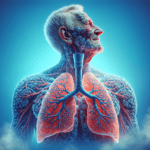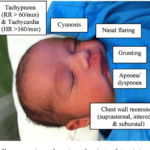
As a parent or caregiver, it’s important to be aware of the common respiratory problems that children often experience. From the occasional cough to more serious conditions, knowing the signs and symptoms can help you provide the necessary care and support. In this article, we will explore the common respiratory problems that children may encounter, such as asthma, bronchiolitis, and allergies. By understanding these conditions, you can empower yourself to take appropriate steps towards ensuring your child’s respiratory health.
Common Respiratory Problems in Children
As a parent, it is essential to be aware of common respiratory problems in children as they can greatly impact their overall health and well-being. By recognizing and understanding these conditions, you can take appropriate measures to help your child manage their symptoms and seek appropriate medical care when necessary. In this article, we will explore some of the most prevalent respiratory problems that children often experience.
Asthma
Asthma is a chronic respiratory condition that affects the airways, causing them to become inflamed and narrowed. This can make it difficult for your child to breathe and result in symptoms such as wheezing, coughing, shortness of breath, and chest tightness. Asthma can be triggered by various factors, including allergies, respiratory infections, exercise, and exposure to irritants like smoke or dust mites.
To manage your child’s asthma, it is important to work closely with their healthcare provider to develop an asthma action plan. This plan can include daily controller medications to prevent symptoms, as well as quick-relief medications to be used during asthma attacks. Identifying and avoiding triggers is also crucial in managing your child’s condition effectively.
Bronchiolitis
Bronchiolitis is a common respiratory infection that primarily affects infants and young children. It is caused by a viral infection, typically respiratory syncytial virus (RSV). The condition causes inflammation and mucus buildup in the small airways of the lungs, leading to symptoms such as coughing, wheezing, difficulty breathing, and a runny nose.
Treatment for bronchiolitis is primarily supportive, focusing on relieving symptoms and ensuring your child stays hydrated. Adequate rest and proper fluid intake are essential during recovery. In severe cases, hospitalization may be required.

Pneumonia
Pneumonia is an infection that affects the lungs, causing inflammation in the air sacs. This condition can be caused by bacteria, viruses, or fungi, and it is essential to seek medical attention promptly to avoid complications. Symptoms of pneumonia in children can include fever, cough, rapid breathing, chest pain, fatigue, and difficulty breathing.
Treatment for pneumonia often involves antibiotics for bacterial infections or antiviral medications for viral infections. It is crucial to ensure your child receives plenty of rest, fluids, and proper nutrition to aid in their recovery. In severe cases, hospitalization may be necessary.
Croup
Croup is a viral infection that primarily affects infants and young children. It causes inflammation in the upper airways, resulting in a barking cough, hoarseness, stridor (a high-pitched noise when breathing in), and difficulty breathing. Croup is commonly caused by the parainfluenza virus and tends to worsen at night.
Most cases of croup can be managed at home by keeping your child comfortable and providing humidified air to ease their breathing. However, in severe cases where breathing difficulties persist or worsen, medical attention may be necessary, and corticosteroids may be prescribed to reduce airway inflammation.

Allergies
Allergies are another common respiratory problem that can affect children. Allergies occur when the immune system overreacts to substances in the environment, such as pollen, pet dander, mold, or dust mites. Respiratory symptoms of allergies can include sneezing, itchy or watery eyes, runny nose, nasal congestion, and coughing.
Treatment for allergies often involves allergen avoidance, such as keeping the home clean and free from potential triggers. Over-the-counter antihistamines can help relieve mild symptoms, but if allergies significantly impact your child’s daily life, your healthcare provider may recommend allergy testing and immunotherapy.
Sinusitis
Sinusitis, also known as a sinus infection, occurs when the sinuses become inflamed and filled with mucus. This condition can be caused by a viral or bacterial infection, and symptoms can include facial pain or pressure, headache, nasal congestion, thick nasal discharge, coughing, and a reduced sense of smell.
Treatment for sinusitis may include saline nasal rinses, over-the-counter pain relievers, and decongestants to alleviate symptoms. In some cases, antibiotics may be prescribed if a bacterial infection is present. It is crucial to monitor your child’s symptoms and seek medical attention if they worsen or persist.

Common Cold
The common cold is an extremely prevalent respiratory infection in children. It is caused by a viral infection and can lead to symptoms such as a runny or stuffy nose, sneezing, sore throat, coughing, mild headache, mild fever, and fatigue.
Treating a common cold involves focusing on relieving symptoms and ensuring your child gets plenty of rest and fluids. Over-the-counter medications may be used to alleviate symptoms like nasal congestion, cough, and fever. It is important to note that antibiotics are not effective against the common cold, as it is caused by a virus.
Influenza (Flu)
Influenza, commonly known as the flu, is a highly contagious respiratory infection caused by the influenza virus. Symptoms of the flu in children can include high fever, chills, sore throat, cough, congestion, muscle aches, headache, and fatigue. In severe cases, complications such as pneumonia can occur.
Prevention is crucial when it comes to the flu. Annual flu vaccines are recommended for children to reduce the risk of infection. If your child does contract the flu, supportive care with plenty of rest, fluids, and over-the-counter medications to manage symptoms is typically the course of treatment. In severe cases or for individuals at high risk of complications, antiviral medications may be prescribed.
Strep Throat
Strep throat is a bacterial infection caused by group A Streptococcus bacteria. It primarily affects school-aged children and can cause symptoms such as sore throat, difficulty swallowing, fever, headache, stomachache, and swollen tonsils. Strep throat is highly contagious and can easily spread among children in close contact, such as in schools or daycare facilities.
Treatment for strep throat generally involves antibiotics to eliminate the bacterial infection. It is important for your child to complete the full course of antibiotics to prevent complications and reduce the risk of spreading the infection to others.
Tonsillitis
Tonsillitis is an inflammation of the tonsils, which are located at the back of the throat. It can be caused by a viral or bacterial infection and typically presents with symptoms such as sore throat, difficulty swallowing, fever, swollen tonsils, bad breath, and tender lymph nodes.
Treatment for tonsillitis depends on the cause. Viral tonsillitis is usually managed with supportive care, including rest, fluids, and over-the-counter pain relievers. In cases of bacterial tonsillitis, antibiotics may be prescribed to eliminate the infection. In some cases, particularly for recurrent tonsillitis, surgical removal of the tonsils (tonsillectomy) may be recommended.
By familiarizing yourself with these common respiratory problems in children, you can better understand and respond to your child’s needs. Remember, always consult with your healthcare provider for an accurate diagnosis and appropriate treatment plan tailored to your child’s specific condition. With proper care, support, and medical guidance, you can help your child navigate respiratory problems and ensure their well-being.









